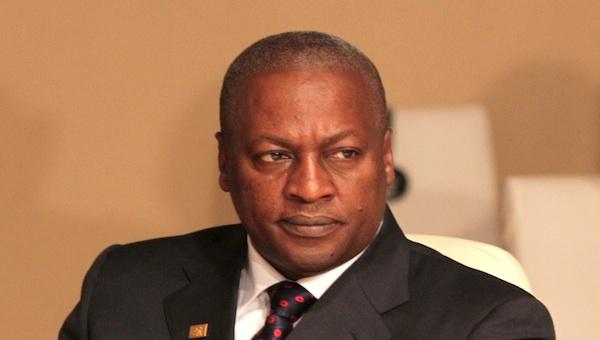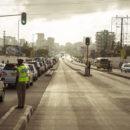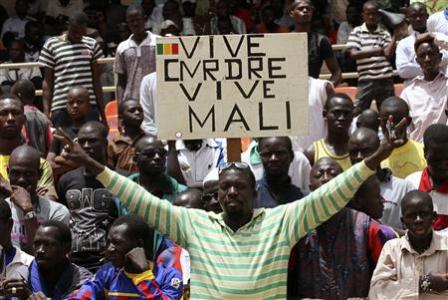South Kordofan: The Challenge Ahead
On April 14, Abdel-Aziz Adam al Hilu was installed as Deputy Governor of South Kordofan for the SPLM, replacing Daniel Kodi who was dismissed two months earlier, by his own party’s Security Council. With the appointment of the popular al Hilu, perceived by most Nuba as a strong leader who will make no concessions to the NCP, the SPLM hopes to end a long period of turmoil within its ranks in South Kordofan.

Although al Hilu might be more efficient than Kodi in organising the Nuba, he is not expected to magically change around the difficult SPLM-NCP partnership in the state. Since the signing of the CPA in January 2005, implementation of the protocol on the resolution of conflict in Southern Kordofan/Nuba Mountains and Blue Nile States has progressed – well – reluctantly.
The central idea behind the protocol for South Kordofan and Blue Nile seems to have been that the two parties – NCP and SPLM – would cooperate in the respective state parliaments to work out the details: first to draw up the state constitution, then the state laws, and eventually to address the relationship between the state and the central Government in the process of Popular Consultation. However, it soon became clear that particularly in South Kordofan NCP and SPLM found it very hard to work together.
Reports of insecurity and frustration dominated the news coverage of South Kordofan. I contributed in May 2006 with an article ‘Nobody wants to go back to war, but…’ and many articles and reports were published since then in much the same vain. In September 2007, Alex de Waal drew attention to the potential escalation of violence in the state; you may remember last year’s SAS and ICG reports. The recent National Democratic Institute report: “˜Losing Hope’ is the latest alarming story on the situation in South Kordofan.
There was a brief period when things started moving in South Kordofan, notably in July and August 2008, a period that coincided with the absence of Daniel Kodi who was in Europe for medical treatment. I wrote about this development with some optimism, hoping that progress on administrative and police force integration would address other issues like insecurity and lack of development. However, the momentum was lost by September 2008, and it hasn’t been regained.
Instead, the SPLM South Kordofan issued an ultimatum in the final days of 2008. The NCP had to meet several demands within a month or else the SPLM would suspend its participation in the South Kordofan partnership. Two months past and nothing was heard of the ultimatum again. Rather, by late February 2009, SPLM chairman in South Kordofan, Daniel Kodi, was dismissed by the SPLM South Kordofan Security Council.
The years of obstruction and frustration caused me to conclude that besides an evident lack of confidence there was a lack of incentives for the parties to cooperate. What was and is at stake in South Kordofan is not development of the area, it is not even security. Rather, everything revolves around the results of the national and state elections that are now to be held in 2010. Through the process of Popular Consultation, the elected State legislature will have a chance to demand changes to the agreement that was previously reached. Only the party that wins the elections in South Kordofan can hope to significantly influence the state’s future status.
Political calculations by NCP and SPLM apparently amounted to a simple conclusion: cooperation was not favourable to either party’s chances in the elections. Counting on its overwhelming support among the Nuba population to win the elections, the SPLM saw no reason to compromise with the former enemy. Judging from the reasons given for the vote-of-no-confidence against Kodi, the SPLM Security Council in South Kordofan wanted to replace him with someone who would be tougher with the NCP.
The NCP, counting on support of the Arab population, had already succeeded to amalgamate former West Kordofan with its largely Arab population to South Kordofan just prior to the signing of the CPA. To close the electoral gap it seems to have chosen a tactic of obstruction hoping to discredit and divide the SPLM. Although it obviously succeeded in creating considerable disharmony among the SPLM South Kordofan, this appears to have had little effect on the Nuba electorate – at least not in April 2008, when the NDI polled the people in the state.
Yet the SPLM in South Kordofan is not completely confident: in all its public statements over the past few years, one issue constantly reappears: the need to help larger numbers of IDPs to return to South Kordofan. I have interpreted this as a strategic interest to secure a strong majority in the elections that can counter any attempts of the NCP to meddle with the outcome. But as long as development lags behind and security continues to be problematic, many refugees will remain where they are: in the cities in North Sudan.
Only integration of the administration and the security forces would address these problems efficiently. This demands cooperation with the NCP – the situation in Blue Nile shows that it is not altogether impossible. But for the SPLM politicians in South Kordofan it poses a real dilemma: the same concessions they would have to make in order to improve the living conditions of the population and bring more people back to the state could easily make them suspect in the eyes of their Nuba followers. Especially Nuba officers in the SPLA seem to wonder why the NCP would praise Malik Agar, the SPLM Governor in Blue Nile state. They think he may have become too friendly with Khartoum.
It is interesting to learn from the NDI report that the Funj in Blue Nile do not share this suspicion of their Governor. They clearly support his policy, and even a part of the Arab peoples in Blue Nile do. Still, South Kordofan is not Blue Nile, and it is not possible to attribute the different process in Blue Nile solely to the leadership of Malik Agar. One thing is certain: Abdel-Aziz Adam al Hilu will not likely be perceived as giving in too much to the NCP.
With his authority and his popular support, the new Deputy Governor might be able to reorganise the SPLM in South Kordofan and ready it for elections. Given his long military experience he may also find a way to address some of the security issues in the state. It is less likely however, that we will see much further political development in South Kordofan until after the elections.
As I have said before, I do not think that the security situation in South Kordofan will easily spiral out of control and trigger a return to war. Initially I did fear that violent clashes between Nuba and Arab inhabitants could escalate, but when several local conflicts were contained by joint efforts of NCP and SPLM politicians, I started to believe that they were rather determined to make it to the elections and take it from there.
And this leaves one major concern; something I signalled back in 2006: by not working together, the parties only achieve that one of them is going to be left empty handed – and that may not be an acceptable outcome. It is exactly what the NDI report shows in South Kordofan: neither Nuba nor Arab participants in the focus groups are ready to accept an electoral victory for the other party. I believe this is the big question al Hilu has to answer: how can he stand firm for the interests of the Nuba while at the same time extending a hand to the other peoples in South Kordofan? It is a tremendous challenge, but if anyone might be up to it…







First of I would like to take this chance to thank Abdel Aziz Adam al Hilu for accepting to lead the nuba. we the people of nuba mountains trust in his leadership. we request and urge all the nuba people to rally support behind him so that he can be confident in his decisions. the problems that are facing nuba mountains will only be solved by the nuba only when they are united. The NCP has continued to change the map of south Kordofan for their own interests.. They have taken many of our areas and allowed many arabs to garb our lands. they have also made sure that our region which is very proxy to Khartoum and other towns in the north has lagged behind. we the Nuba will not rest until the Arab dominated NCP comes to terms that we are all equal and need equal opportunities for education, development, security, peace and full respect of human rights.
Dear Abdel Aziz, in the name of Nuba people, we shall stand behind you, we will give all the support, it is you who has given us hope, you are our torch bearer. we will follow you , we pray that you lead us towards a rightful direction. Nuba people have always fallen victims of circumstance because we do not have strong leaders. United we stand divided we fall. Let all of us pick the option of unity.
Nuba people let us not be fooled twice.
We joined the SPLM/A because we had the same grievances, we hoped we would achieve exactly would achieve exactly what they have achieved. But unfortunately when the peace was signed in Naivaisha, they gave us the so-called ‘Popular Consultation’ and took for themselves a right to independence by voting in 2011. We expect them to cooperate with us so that they could give us guns and other things for the development of the Nuba, but it seems they have turned deaf ears. Nuba therefore does not need to worry because they have not yet crossed the river. If their boats begin to sink then help from the Nuba Mountains will also be absent. Some of us who fought and have got all our bodies filled with wounds are still shocked and crying in our hearts for the cheating that was done by our leaders in the south. Their selfishness will not be forgotten by the Nuba. We are happy that Abdel Aziz has come back to lead us. South Sudan, we are still in the river swimming. Do not rejoice. The crocodile or hippo is still pushing the boat.
by anubarem.
Keep in mind that Malik is from the Ingessina hills, an area really never taken by the SPLA. He is an excellent leader. Many Funj fought for the SPLA side. The interviews from the NDI report are almost 8 months old. I think there’s increasing disillusionment with the leadership of Malik though probably not worth fighting a war over. The uduk are an interesting case study in all of this. Will they fall in with Malik’s push of federalism or make a bold move to join the south.